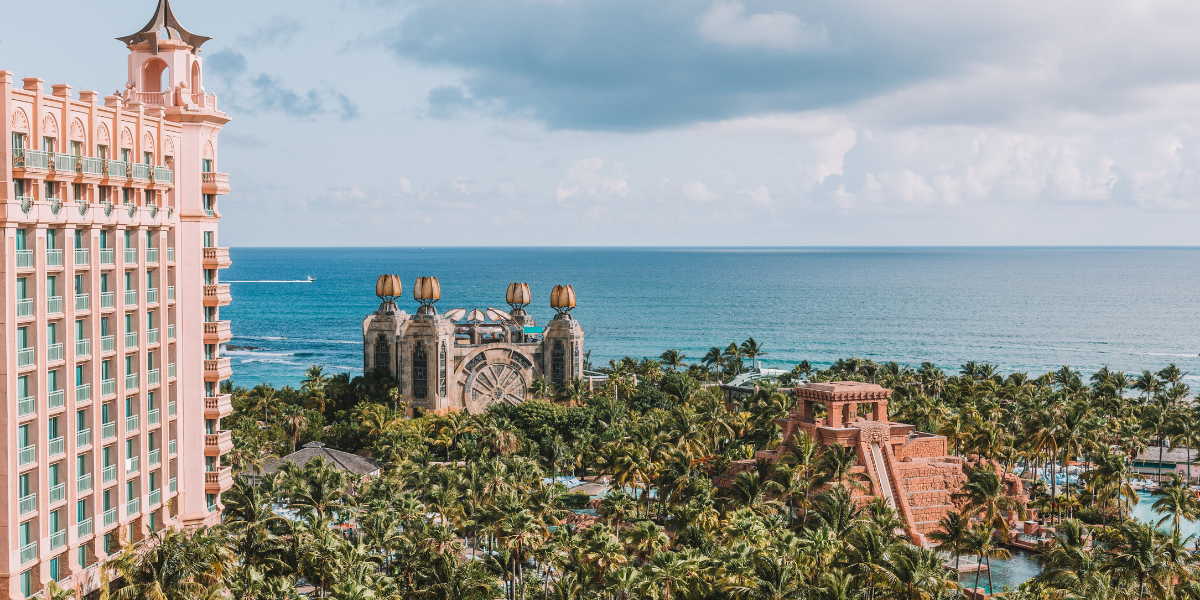Ahh…The Bahamas. With beautiful sandy beaches, turquoise waters, world-class nightlife and dining, what more could a sun-craving American ask for?
And on top of its gorgeous landscapes and relaxed lifestyle, the Bahamas is an attractive country for many expats due to its low taxes.
This blog post will cover what taxes US expats in the Bahamas have to pay, the requirements to become a Bahamian resident, and what expats can do to minimize their US tax bill while overseas.
Is the Bahamas a Tax Haven?
The Bahamas offers excellent tax benefits to expats. According to Forbes Magazine:
“Countries like the Bahamas make tax haven status an integral part of their marketing. For Bahamians and resident aliens there are no taxes on personal income, capital gains, inheritance or gifts.”
As a result, it’s fair to consider the Bahamas as a tax haven due to the low tax obligations of its residents. The government of the Bahamas collects most of its tax revenue from the sources listed below:
- – Property taxes
- – Import and export duties
- – Stamp taxes
- – License fees
Residents will still have to make social security payments to the National Insurance Board of the Bahamas. Employers pay 5.4% of their wages in social security payments, while employees pay 3.4%. On the other hand, self-employed residents will have to pay 8.8% in security payments themselves.
It’s worth noting that while the Bahamas doesn’t impose any income taxes on its residents, its high import taxes increase the costs of living in the country. According to the Bahama Customs website, its duty costs can range from as low as 0% to as high as 220%.
In terms of property taxes, resident owners of homes worth less than BSD $250,000 are exempt from paying any tax on their property.
For properties worth between BSD $250,000 – $500,000, you’ll have to pay ⅝ of 1% of your home’s market value in taxes. If your home’s market value is above BSD $500,000, you’ll be paying 1% of its value in property taxes.
Each year, you’ll have to declare your properties to the Bahaman Chief Valuation Officer. The officer will analyze the value of your properties and determine how much you should pay in property taxes.
What Are the Requirements to Become a Resident in the Bahamas?
US expats with clean criminal records can become permanent residents of the Bahamas through investment. Expats have two options: they can either buy property in the Bahamas or invest in various sectors of the country’s economy, such as medicine or tourism.
According to the official website of the government of the Bahamas, expats must make a minimum capital investment of BSD $500,000 to qualify for permanent residency. However, the Bahamas Immigration website also notes that “persons purchasing a residence for BSD $750,000.00 or more will get speedy consideration” when it comes to their application.
(For reference, the Bahamian dollar is pegged to the US dollar).
Other supporting documents you’ll need for your permanent residency include copies of your passport, proof of financial capability, and character reference. You’ll need to spend at least 90 days in the Bahamas per year to maintain your permanent residency.
Do American Expats Living in the Bahamas Have to File a US Tax Return?
The idea of sipping cocktails all day on beautiful, sandy beaches while not paying any income taxes might seem like the perfect setup. However, even as you’re living your best life in the Bahamas, you can’t forget about your US tax obligations.
The US is one of the few countries in the world that applies citizenship-based taxation. Regardless of where you live, you must file your tax return each year as an American citizen.
And if you don’t comply, you could deal with hefty fines from the IRS. Because of the Foreign Account Tax Compliance Act (FATCA), the Bahamas have an obligation to share the financial activities of US citizens within its territory.
Read More: What is Citizenship Based Taxation?.
In other words, there isn’t a way to escape from the scrutiny of the IRS. The tax forms that US expats might have to fill out while living in the Bahamas include:
Form 8938
If your overseas assets are worth more than $300,000 throughout the tax year (or $200,000 on December 31), you’ll need to file Form 8938. For joint returns, the threshold doubles ($600,000 during the year, or $400,000 on December 31). You can view the official instructions for completing Form 8938 from the IRS here.
Foreign Bank Account Report (FBAR)
Expats that hold more than $10,000 in foreign financial accounts must file the Foreign Bank Account Report (FBAR). The deadline for filing the FBAR is October 15th for each tax year.
Individual Income Tax Return (Form 1040)
US expats in the Bahamas still must file their income tax returns. As an expat, you have until June 15th of each tax year to file your tax return overseas, unlike residents living in the US that have only until April 15th.
What Strategies Can American Expats in the Bahamas Use to Minimize Their Taxes?
The good news is that thanks to various tools offered by the IRS, there are multiple ways US expats can minimize their tax returns. These programs include:
Foreign Earned Income Exclusion (FEIFE)
The Foreign Earned Income Exclusion (FEIFE) allows US expats in the Bahamas to exclude up to $112,000 (2022) of their earned income from their tax returns. There are two ways to qualify for the FEIFE.
The first is to go through the Bona Fide Resident Test, in which you’ll have to prove that you’ve been a resident of the Bahamas for more than 1 calendar year. The second way is to qualify by meeting the Physical Presence Test where you confirm to have stayed at least 330 days in the Bahamas across a whole calendar year.
Foreign Housing Exclusion (FHE)
If you qualify for the FEIE, you can also benefit from the Foreign Housing Exclusion (FHE). The FHE allows US expats to reduce part of their housing expenses from their taxable income, which can include:
- – Rent
- – Occupancy taxes
- – Property insurance
- – Rental of furniture
However, the FHE doesn’t cover any expenses that the IRS classifies as “lavish,” such as domestic labor.
Read More: The Foreign Housing Exclusion: A Brief Guide For US Expats
Let Professionals Handle Your US Expat Taxes
The Bahamas is the perfect place for expats that love the sun and want to save money on taxes. And if you need guidance on navigating the complex US tax system as you make the move overseas, we’re here to help.
At BrightTax, we’ve helped countless Americans across 200 countries successfully handle their US tax returns so they can focus on what matters most to them: enjoying and adapting to their new host country.
Even if you’ve already been living in the Bahamas for quite some time and have yet to file your US tax return, don’t worry. The IRS has an amnesty program called the Streamlined Filing Compliance Procedures to help you catch up on your taxes without paying any penalties, which our team of tax professionals can help guide you through as well.
Contact us today to be in touch with a BrightTax CPA to assess your current tax situation overseas.

 Connect on LinkedIn
Connect on LinkedIn

